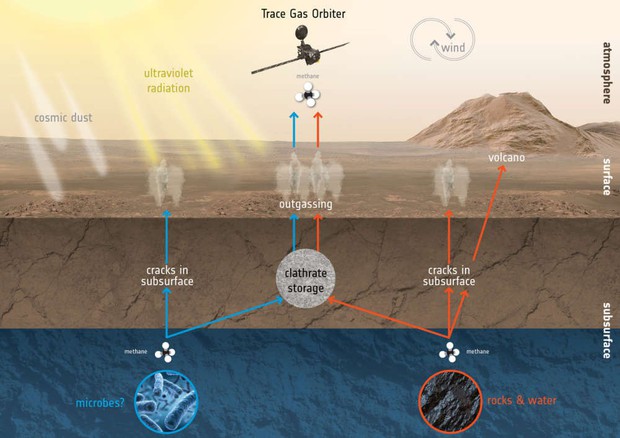Finally, the question of “whether or not there is life on Mars” will be revealed in the very near future.
Recently, the European Aerospace Agency (ESA) ExoMars Trace Gas Orbiter officially launched a life search mission to Mars.
Trace Gas Orbiter was launched in 2016, but did not reach the Red Planet until April 2018. Using the airbrake technique (deceleration thanks to the atmosphere), the ship moved an elliptical orbit of 98,000 km around the planet, at an altitude of 400 km above the surface.
“This is an important step in the ExoMars project, and also a great success for the whole of Europe” – said Pia Mistchdoerfer, head of the Trace Gas Orbiter campaign.
“We were in orbit for the first time with the airbrake, also the heaviest probe on Mars, and started looking for signs of life.”
The purpose of the ship is to follow the traces of gas on the surface of the planet, as its name suggests “trace gas”. The “gases” here are substances that make up only 1% of Mars’ atmosphere, and ESA wants to determine what these gases are.
What’s more, experts want to find gases that can only be produced by biological activities – like methane – because it’s a sign of life.
On Earth, methane can be thought of as a by-product of life, made by living organisms. Volcanoes and geological activities can also generate methane. On Mars, the methane here is only 400 years old – it’s very “new”. If methane is detected here, then something is happening below the surface of Mars.
“In the coming weeks the campaign will start and we look forward to what it will bring,” said Håkan Svedhem, project expert.
“The trace gas orbiter is sensitive enough to detect gases within minutes, which means it is capable enough of discovering whether Mars is still ‘alive’ or not.”



